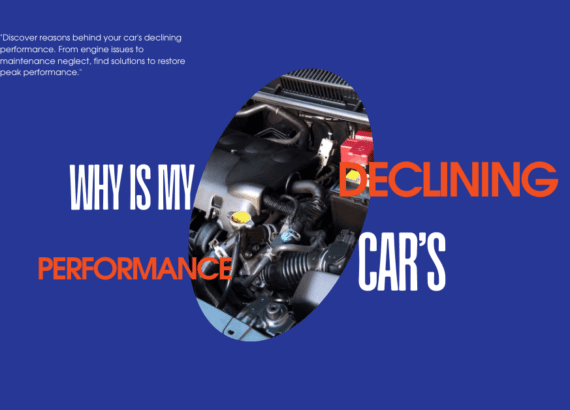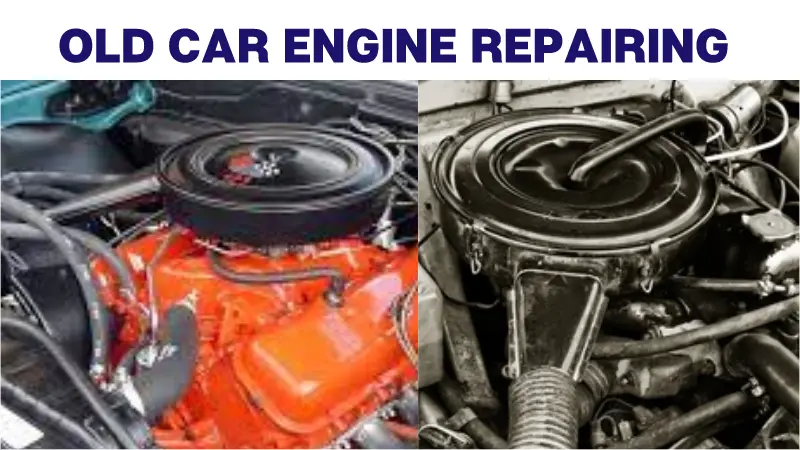How To Improve Your Diesel Engine Lifespan

Diesel engines stand out from their gas-powered counterparts by converting chemical energy into mechanical force to power vehicles. The key difference lies in how combustion occurs: diesel engines compress air until it’s hot enough for fuel to ignite upon injection, distinct from the spark plug ignition in gas engines.
Proper maintenance is a pivotal option for enhancing the longevity of diesel engines. Regular checks, ensuring fuel quality, and addressing potential issues with the injection system can prevent expensive repairs, improving the engine’s durability and lifespan significantly.
As an automotive enthusiast with a keen interest in a career as a mechanic, I’ve observed the vital importance of guiding drivers to follow these maintenance tips. A well-maintained diesel engine can endure thousands of kilometers, showcasing its powerful and durable nature when given the attention it deserves.
Through personal experience, I’ve seen how prioritizing proper maintenance can transform a diesel engine into a reliable, long-lasting powerhouse. Understanding these engines’ intricacies and providing diligent care can make a substantial difference, avoiding costly breakdowns and ensuring a smooth journey.
How Does A Diesel Engine Work?
Understanding the operation of a diesel engine involves recognizing the different types of ignition processes compared to gasoline engines. Unlike gasoline engines relying on spark plugs for ignition, diesel engines work use compression to ignite the fuel-air mixture within the cylinder. This method leads to a significant heat-up within the cylinder due to compression, resulting in a higher degree of efficiency.
The variety of fuel sources available for diesel engines, including renewable options like vegetable oil, stems from this unique compression-based ignition. This technique not only improves efficiency but also minimizes emissions during operation. This streamlined process, utilizing a wider variety of fuel types, contributes to an extended engine lifespan by reducing stress on the cylinder.
Recognizing these differences in ignition processes between diesel and gasoline engines highlights the multiple sources of fuel available and the various ways diesel engines can contribute to a more environmentally conscious approach. This knowledge also emphasizes the versatility and reliability of diesel engines across different applications.
Maintenance Schedule for a Diesel Engine
Regular maintenance is the cornerstone of a robust diesel engine lifespan, with factors like make, model, and usage influencing the specific schedule. Adhering to manufacturer-recommended guidelines, consistently checking and changing oil, inspecting the fuel system, and replacing coolant are paramount.
Yearly thorough inspections unearth potential issues early, exemplifying the simplicity of these guidelines in preserving the engine’s health. My personal experience underscores the value of proactive maintenance—a small investment in time routinely can avert significant troubleshooting later on.
Using High-Quality Fuel For A Diesel Engine
Many drivers are often not aware of the paramount importance attached to using high-quality fuel for their diesel engines. While opting for cheap fuel might seem financially prudent, it can result in engine damage leading to costly repairs.
Beyond the immediate cost implications, low-quality fuel can significantly impact engine efficiency, causing reduced power and increased fuel consumption. To safeguard your engine’s health, it’s crucial to consistently choose properly refined diesel from reputable sources.
Based on my experience, compromising on fuel quality can have far-reaching consequences. It not only affects the engine’s performance but also its longevity, potentially increasing the risk of expensive repairs. Investing in premium fuel may appear an additional expense, but it’s an investment that ensures a smooth-running engine and mitigates potential issues.
Ultimately, prioritizing high-quality fuel fortifies your diesel engine, ensuring optimal performance and potentially averting costly repairs in the long term.
Inspecting Hoses And Belts
Maintaining your vehicle requires regular attention to every detail to keep it running smoothly. When it comes to ensuring your diesel engine’s longevity, inspecting hoses and belts becomes crucial. These components, vital for carrying fluids and transmitting power, are susceptible to wear and tear over time.
A visual inspection is the initial step to identify any potential issues. Look out for cracks, leaks, fraying, or any signs of damage. Such signs demand immediate attention. Additionally, check for proper tension in belts to prevent future issues. Neglecting these checks could result in costly repairs down the line.
From my experience, I’ve learned that inspecting on a regular basis keeps these components in good running condition. Even minor issues, when detected early, can be fixed promptly, saving you from larger problems later. Take care of these small yet vital components, and your diesel engine will thank you with a prolonged lifespan.
Store Fuel Properly
When it comes to fuel, it’s not just about acquisition; it’s about longevity. Storing fuel safely is pivotal in enhancing your diesel engine’s lifespan. To store it effectively, start with the containers. Opt for ones in good condition, free from any defects that could lead to leaks.
Label each container clearly, detailing the type and date of the fuel. Ensure they’re sealed securely to prevent any potential accidents or leaks. Place these containers in a cool, dry place, away from heat sources that could compromise the fuel quality.
Remember, overfilling is a no-go; it might lead to spills or leaks. When transferring fuel to your diesel engine, follow protocols to avoid any leftover spills. Dispose of any leftover fuel responsibly at a certified disposal site.
Following these tips to store fuel not only adds to the safety but also significantly contributes to the prolonged life of your diesel engine.
Avoid Overloading Your Vehicle
When it comes to maintaining a diesel engine’s longevity, a crucial yet often overlooked aspect is avoiding overloading your vehicle. This goes beyond mere caution—it’s about mitigating dangerous risks associated with unevenly distributed weight. Properly distributing the load within your vehicle not only enhances handling and braking but also prevents premature wear on tires.
From my own experiences, I’ve learned that an imbalanced load can significantly impact both performance and safety on the road. Overloading doesn’t just strain the engine; it amplifies the risk of accidents and compromises safety. By consciously distributing cargo weight and adhering to recommended capacities, you not only ensure safety but also extend your diesel engine’s lifespan, fostering a harmonious, long-term relationship with your vehicle’s performance.
Improving Diesel Engine Lifespan
Regular maintenance is essential for diesel engines to enhance their lifespan. Consistently inspecting and caring for crucial parts like hoses and belts ensures their durability. Keeping these components in top condition through regular cleaning is pivotal for smooth and efficient operation.
Personal experience underscores the significance of proactive maintenance. Vigilance in inspecting and addressing issues promptly has been instrumental in maximizing diesel engine durability and ensuring uninterrupted running.
Give a Diesel Engine Some Time to Warm Up

Waiting before starting your vehicle in colder weather is advised. Allowing the engine to warm up for a brief period helps ensure that its components have time to expand and leaks are minimized. This process allows the oil pump working to properly lubricate the engine, efficiently ensuring it operates smoothly.
Just a few seconds of patience can significantly impact the lifespan of your diesel engine by enhancing its overall efficiency and performance while driving. In my experience with diesel engines, this simple act of waiting before starting the engine can make a remarkable difference, reducing wear and tear on crucial components.
Avoid Using Performance Products on a Diesel Engine
In the world of diesel engines, there’s a persistent allure to enhance performance through aftermarket products. Yet, the claims of companies marketing these upgrades often fall short. Injectors, FASS fuel pumps, or chips promising heightened performance can actually compromise the engine’s longevity.
Manufacturers meticulously design engines for optimal efficiency within specific parameters. Adding unauthorized enhancements disrupts this delicate balance, potentially reducing the engine’s lifespan. Personal experience underscores the caution advised by professionals in auto careers: steer clear of these modifications to safeguard your diesel engine.
Instead, prioritize routine maintenance as the cornerstone of preserving your engine’s health. Regular checks, following manufacturer guidelines, and ensuring clean fuel intake maintain the engine’s efficiency. True enhancements stem from these maintenance practices, not from aftermarket alterations.
While the temptation of heightened performance lingers, it’s wiser to prioritize the engine’s long-term health over short-lived gains. By avoiding unauthorized upgrades, drivers ensure their vehicles operate as intended, safeguarding their diesel engine for enduring performance.
Don’t Use the Full Tank of Fuel
Refueling plays a crucial role in the longevity of a diesel engine. One often overlooked practice is avoiding a full tank refill. Leaving at least a quarter of the tank unfilled helps prevent impurities and debris from infiltrating the fuel system.
Another important consideration is strategic emptying of the tank. Running on near-empty can draw in settled dirt, impacting the supply systems. Finding a balance between overfilling and running too low is key.
Monitoring the fuel indicator is a simple yet effective way to maintain an optimal level, ensuring clean fuel reaches the engine, averting potential harm caused by impurities.
From my experience, this adjustment in refueling habits has shown significant benefits in extending the life of a diesel engine. It’s a small change that yields considerable long-term advantages.
Perform Regular Maintenance
Performing Regular Maintenance on your diesel engine is paramount to ensuring its longevity. Embrace preventative measures as they’re a driver for prolonged lifespan. A seasoned automotive mechanic will attest: staying proactive helps prevent damage. Get intimate with your maintenance manual; it’s a treasure trove of insights.
Familiarize yourself with warning signs like the check engine light or unusual leaks. A diesel engine that runs for years does so under the care of someone who knows its needs intimately. Neglecting important checks can cut short what should be a long-lasting relationship with your vehicle.
Conclusion
Improving the lifespan of a diesel engine hinges on a series of mindful practices and dedicated attention. The distinct combustion process of these engines demands meticulous care and maintenance. From my experience and understanding, it’s evident that adhering to proper maintenance schedules, using high-quality fuel, inspecting crucial components regularly, and even adjusting refueling habits can significantly impact the engine’s durability.
Avoiding overloading, letting the engine warm up, refraining from using unauthorized performance products, and performing routine checks are small yet pivotal steps in prolonging the life of a diesel engine. Ultimately, a diesel engine’s longevity thrives under the consistent, proactive care of someone who comprehends its intricacies. It’s not just about following guidelines; it’s about nurturing a relationship with the engine, ensuring it operates at its peak for years to come.
FAQs
How can I increase the lifespan of my diesel engine?
- Make sure you change your oil frequently: It is advised that you change your engine oil every 4000 to 6000 miles, and ensure that this is done consistently and regularly. …
- Oil Filters need renewal too
- Fuel checks are important:
- Let your vehicles warm up:
- Lubrication is vital
How can I make my diesel last longer?
- Keep the fuel dry. Water exposure is a major cause of fuel degradation.
- Keep the fuel cool. Ideally, diesel fuel should be stored around 70°F.
- Use a fuel biocide.
- Use a multi-functional fuel additive to increase fuel shelf-life.
How do I keep my diesel engine in good condition?
Stay on top of diesel engine maintenance with this simple-to-follow checklist.
- Change oil and filters regularly.
- Check and preserve water control components.
- Keep water out of the fuel tank.
- Maintain fuel injectors.
- Check the alternator, radiator, compressor, and condenser mountings for looseness or cracks.
What is the max life of a diesel engine?
If kept well-maintained, a diesel engine can be driven for about 30 years or more.
Can diesel last 20 years?
How Long Does Fuel Really Last? In general, gasoline and diesel can be stored for 6 months to 1 year without significant degradation if they are stored in a clean, sealed, and dry container or tank, away from sunlight, heat, and sources of ignition.
Do all diesel engines last longer?
The two technologies are similar, but differences in design mean that diesel engines are built tougher and last longer. This is true for all types of passenger cars, trucks, commercial vehicles and other diesel-powered equipment. Like all engines, diesels only last a long time if they’re looked after properly.











